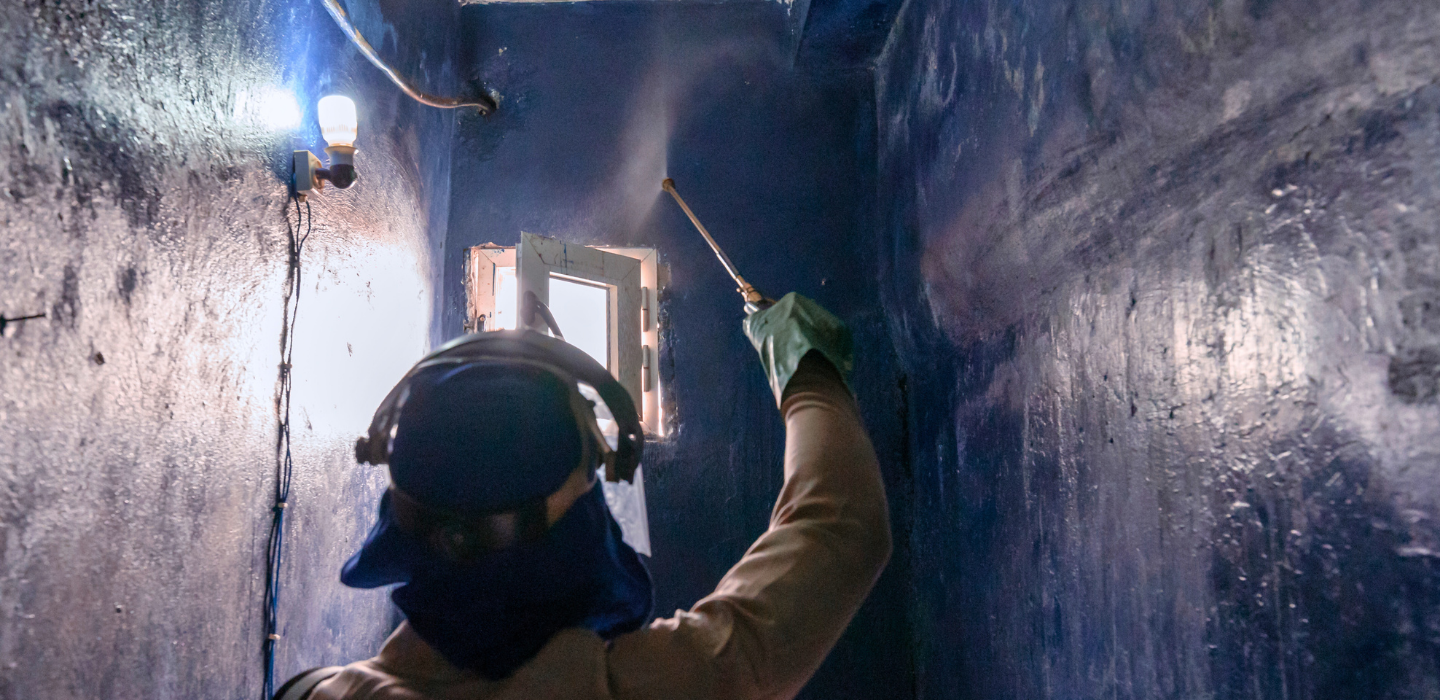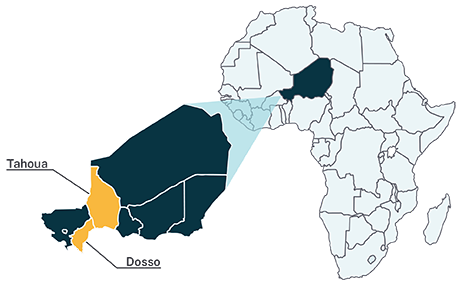We know good decisions come from good data. Timely and accurate data help local leaders to monitor the malaria situation and the efficiency of various malaria interventions: This is key for quick actions and adaptations to improve malaria control and eventually reach malaria elimination.
In 2020, there were an estimated 241 million cases of malaria worldwide and an estimated 627,000 malaria-related deaths. Approximately 77% of malaria fatalities were children younger than 5 years old.
Developing Innovative Tools & Software
Our teams leverage digital health tools to streamline data collection and automate data-driven analytics for rapid decision making. We also use the Collector for ArcGIS, a geospatial Android application, to locate and monitor the treatment of mosquito breeding sites. All of these data are visualized through Tableau and PowerBi dashboards to better organize and discover valuable information to help guide our programs.
We’ve developed a tablet application called the Campaign Information Management System (CIMS), which we use to collect longitudinal data for malaria control activities, enabling us to measure impact down to the household level.
MCD has 20 years of experience in conducting annual malaria indicator surveys (MIS) about household socioeconomic and demographic characteristics, health-seeking behavior, malaria interventions usage, and parasite prevalence of household members.
The MIS is one of our most valuable sources of information. In 2023, we surveyed almost 5,000 households on Bioko Island, and as part of the survey, tested more than 12,000 people for malaria. We learned about people’s behaviors with bed nets, malaria in pregnancy, managing fevers, knowledge of malaria, and more.
In addition, we use the Health Network Quality Improvement System (HNQIS), linked to DHIS2, to monitor the performance of health facilities and health care providers during routine, integrated outreach, training, and supportive supervision (OTSS) visits. We also use CommCare to collect data on individual, household, and community-level malaria interventions.
Designing & Implementing Annual Malaria Indicator Surveys
MCD has nearly 20 years of experience in conducting annual malaria indicator surveys (MIS) about household socioeconomic and demographic characteristics, health-seeking behavior, malaria interventions usage, and parasite prevalence of household members.
The MIS is one of our most valuable sources of information. In 2021, we surveyed almost 5,000 households on Bioko Island, and as part of the survey, tested almost 12,000 people for malaria. We learned about people’s behaviors with bed nets, malaria in pregnancy, managing fevers, knowledge of malaria, and more.
Leading Mosquito Surveillance
Since 2004, MCD has been a leader in developing and implementing electronic data entry tools to collect, analyze, and use data from annual malaria indicator surveys, case reporting, indoor residential spraying, long-lasting insecticide-treated nets, and entomological monitoring.
Our efforts on Bioko Island, Equatorial Guinea, include designing and constructing insectaries where mosquitoes are bred and used to evaluate for insecticide efficacy and resistance. By routinely trapping mosquitoes, we can better understand and monitor species composition, vector densities, infectivity rates, and biting behaviors.






